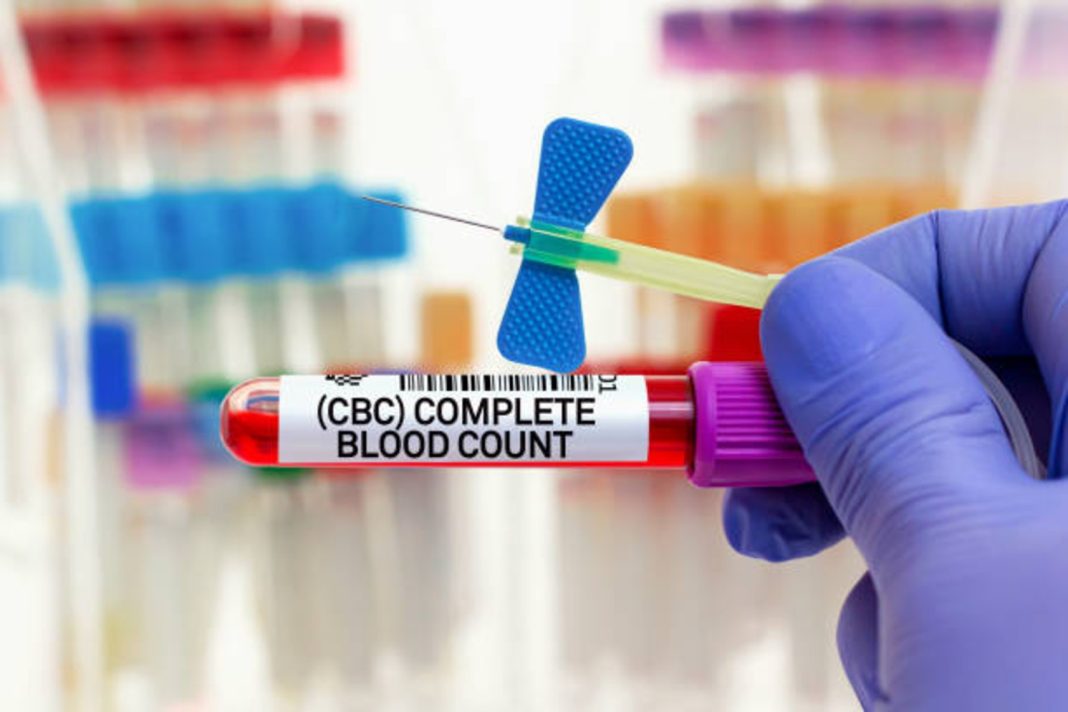Health is one of the most valuable gifts we have. To keep ourselves healthy, doctors often ask us to go for medical tests. One of the most common and important among them is the CBC test. Many people get scared when they hear about a blood test, but there is nothing to worry about. In this article, we will explain the CBC test simplified in a way that even a 5th standard student can easily understand.
What is a CBC Test Simplified?
The term CBC test simplified means making the Complete Blood Count test easy to understand. A CBC test is a blood test that tells doctors about the different types of cells in your blood.
Blood is like a mirror of your health. It has three main parts:
- Red Blood Cells (RBCs) – carry oxygen.
- White Blood Cells (WBCs) – fight infections.
- Platelets – help stop bleeding.
The CBC test simplified checks the number and quality of these cells along with hemoglobin, hematocrit, and other important values.
Why is the CBC Test Simplified Important for Everyone?
The CBC test simplified is important because it gives a clear picture of your overall health. Doctors can find out many health problems with just this one test. Some reasons why it is important are:
- It helps to detect anemia, which makes you feel weak and tired.
- It shows if you have an infection by checking white blood cell count.
- It finds out whether you are losing too much blood.
- It helps in monitoring diseases like cancer, kidney problems, and blood disorders.
- It is part of a regular health check-up to ensure you are healthy.
CBC Test Simplified: How the Test is Done
Many people, especially children, feel nervous about blood tests. But the CBC test simplified process is very safe and easy:
- A nurse or lab technician will clean your arm with a cotton swab.
- A thin needle is used to take a small amount of blood.
- The blood is collected in a special tube.
- The tube is sent to a laboratory where machines count and check the blood cells.
- The doctor reads the report and explains the results.
The process takes just a few minutes. You may feel a tiny pinch, but it does not hurt much.
Main Components of the CBC Test Simplified
To understand the CBC test simplified, let’s look at the main components one by one.
Red Blood Cells (RBCs) in CBC Test Simplified
- Red blood cells carry oxygen from your lungs to your entire body.
- Low RBCs cause anemia, making you tired, pale, and weak.
- Too many RBCs can make your blood thick, which is not healthy.
Hemoglobin in CBC Test Simplified
- Hemoglobin is the red-colored protein in RBCs.
- It carries oxygen and gives blood its red color.
- Low hemoglobin means you may have anemia.
Hematocrit in CBC Test Simplified
- Hematocrit shows the percentage of blood made up of red blood cells.
- Low hematocrit indicates anemia, while high levels may mean dehydration.
White Blood Cells (WBCs) in CBC Test Simplified
- White blood cells are your body’s soldiers.
- They protect you from infections, viruses, and bacteria.
- A high WBC count means infection.
- A low WBC count means weak immunity.
Platelets in CBC Test Simplified
- Platelets are like tiny repair workers.
- They help in clotting when you get a cut or injury.
- Low platelets cause easy bruising and bleeding.
- High platelets can lead to dangerous blood clots.
Mean Corpuscular Volume (MCV) in CBC Test Simplified
- MCV measures the average size of your red blood cells.
- It helps doctors find the type of anemia you may have.

When Do Doctors Recommend a CBC Test Simplified?
Doctors suggest a CBC test simplified in the following cases:
- You feel tired and weak most of the time.
- You look pale and have less energy.
- You have frequent fevers or infections.
- You notice bleeding gums, nosebleeds, or bruises easily.
- You are preparing for surgery.
- You have a long-term illness like kidney disease or cancer.
- During a regular health check-up.
CBC Test Simplified: Understanding the Report
The report may look difficult with numbers, but here’s a CBC test simplified explanation:
- Normal values mean your blood is healthy.
- Low values may indicate anemia, infection, or bleeding.
- High values may show infection, dehydration, or other problems.
Your doctor will compare your results with normal ranges and tell you what it means.
Do You Need to Prepare for a CBC Test Simplified?
The CBC test simplified does not need any special preparation:
- You can eat and drink normally unless your doctor tells you not to.
- Wear comfortable clothes for easy access to your arm.
- Drink enough water so your veins are easy to find.
Is the CBC Test Simplified Safe?
Yes! The CBC test simplified is completely safe.
- Only a small amount of blood is taken.
- You might feel a small pinch.
- A little bruise may appear, but it goes away quickly.
Conclusion: CBC Test Simplified for Healthy Living
The CBC test simplified is one of the most useful and safe blood tests. It helps doctors check the number of red blood cells, white blood cells, hemoglobin, hematocrit, and platelets. Understanding the CBC test simplified helps you take charge of your health and detect problems early. Whether you are a student or an adult, knowing about this test will make you more health-consciou
Frequently Asked Questions (FAQ) on CBC Test Simplified
Q1. What is the main purpose of a CBC test simplified?
A CBC test simplified helps doctors check the overall health of your blood and detect problems like anemia or infection.
Q2. Is the CBC test painful?
No, the CBC test simplified is not painful. You may feel only a slight pinch.
Q3. How long does it take to get the results of the CBC test simplified?
Usually, you can get the results within a few hours or by the next day.
Q4. Can children also take the CBC test simplified?
Yes, the CBC test simplified is safe for both children and adults.
Q5. How often should I get a CBC test simplified?
It depends on your health. Healthy people may need it once a year during check-ups, while sick patients may need it more often.



